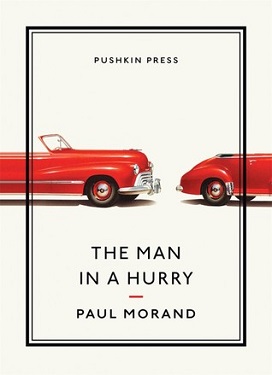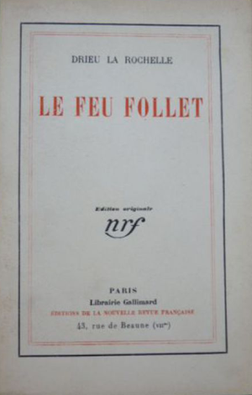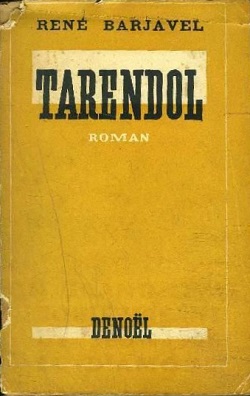
Louis Émile Clément Georges Bernanos was a French author, and a soldier in World War I. A Catholic with monarchist leanings, he was critical of elitist thought and was opposed to what he identified as defeatism. He believed this had led to France's defeat and eventual occupation by Germany in 1940 during World War II. His two best-known novels Sous le soleil de Satan (1926) and the Journal d'un curé de campagne (1936) both revolve around a parish priest who combats evil and despair in the world. Most of his novels have been translated into English and frequently published in both Great Britain and the United States.
William Bradley Strickland is an American writer known primarily for fantasy and science fiction. His speculative fiction is published under the name Brad Strickland except for one novel written as Will Bradley. By a wide margin his work most widely held in WorldCat participating libraries is The Sign of the Sinister Sorcerer, which concluded the Lewis Barnavelt series created by John Bellairs (1938–1991).
Ring of Fire is the English translation of L'anello di fuoco, the 2006 Italian fantasy novel for young people written by Pierdomenico Baccalario, with illustrations by Lacopo Bruno. Ring of Fire is Book One of the Century Quartet.

Susane Colasanti is an American author of young-adult fiction and a former high-school science teacher. She has published 11 young-adult titles since 2006. She lives in New York City.
David Rytman Slavitt is an American writer, poet, and translator, the author of more than 100 books.

The Man in a Hurry is a 1941 novel by the French writer Paul Morand. It tells the story of a busy Paris antiques dealer who does not seem to be able to relax and settle down, not even when he finally becomes enamoured, gets married and has a child. According to Morand, the main character is largely autobiographical. An English translation by Euan Cameron was published by Pushkin Press in 2015.

The Questionnaire is a 1951 autobiographical novel by the German writer Ernst von Salomon. It was published in the United Kingdom as The Answers. It is based on the denazification questionnaire which all Germans with some form of responsibility were forced to take by the military government after World War II. Salomon's detailed answers about his political background, membership of various organisations and so on became a portrayal of Germany during the interwar period, World War II and the immediate post-war period.

Will O' the Wisp is a 1931 novel by the French writer Pierre Drieu La Rochelle. It has also been published in English as The Fire Within. It tells the story of a 30-year-old man who after military service, followed by a few years of cosmopolitan, decadent life, has become burned out, addicted to heroin and tired of living. The author's source of inspiration for the main character was the dadaist poet Jacques Rigaut (1898–1929).

Blue Island is a 1988 novel by the French writer Jean Raspail. The narrative is set in Touraine during World War II, where a charismatic boy gathers his friends on an island, where they play war games which become increasingly more interlinked with reality. The book was published in English in 1991, translated by Jeremy Leggatt.

The Tragic Innocents is a 1946 novel by the French writer René Barjavel. It tells the story of two teenagers, Jean Tarendol and Marie Margherite, who fall in love in occupied France during World War II. The story is set in an imaginary region inspired by the author's native Drôme. The book was published in English in 1948, translated by Eithne Wilkins.

The Divine Child is a 1992 novel by the French writer Pascal Bruckner. It tells the story of twins who are educated while still in their mother's uterus and one of them ends up refusing to be born; he struggles with his mother and with God and eventually becomes a celebrity while still unborn. The book was published in English in 1994, translated by Joachim Neugroschel.

The Diary of a Country Priest is a 1936 novel by the French writer Georges Bernanos. The novel received the Grand Prix du roman de l'Académie française. In 1950 it was named one of the twelve best novels in the French language published between 1900 and 1950. It was the basis for the 1951 film Diary of a Country Priest, directed by Robert Bresson.
Evil Angels is a 1981 novel by the French writer Pascal Bruckner. The French title is Lunes de fiel, which literally means "moons of bile", a pun on "lune de miel", "honeymoon". The story takes place on a passenger ship heading from Marseille to Istanbul, and focuses on a couple who meet a man determined to break them apart. The book was published by Éditions du Seuil. It was published in English in 1987, translated by William R. Beer.

Joy is a 1929 novel by the French writer Georges Bernanos. The story is set among people with shattered dreams and follows a young woman who is defined by youthfulness and joy. The book was awarded the Prix Femina. It was published in English in 1946 in a translation by Louise Varèse.

Night Is Darkest is a novel by the French writer Georges Bernanos, published posthumously in 1950. Its French title is Un mauvais rêve which means "a bad dream". It tells the story of a writer who is out of ideas and has lost his motivation. The book was published in English in 1953, translated by W. J. Strachan.

Mouchette is a 1937 novel by the French writer Georges Bernanos. It tells the story of a 14-year-old peasant girl who is raped and has a number of humiliating encounters. The novel's theme of misery was inspired by Bernanos' experiences from the Spanish Civil War. The book was published in English in 1966, translated by J.C. Whitehouse.

A Nail Merchant at Nightfall is a 1949 novel by the Finnish writer Mika Waltari. It is a fictionalised and humorous account of when Waltari wrote his novel The Egyptian. It was published in English in 1954, translated by Alan Beesley.
The Crime is a 1935 novel by the French writer Georges Bernanos. It has also been published as A Crime. The novel is a detective story that was written for commercial prospects.

A Dangerous Encounter is a 1985 novel by the German writer Ernst Jünger. The story is set in Paris in the late 19th century and follows a murder investigation in a decadent aristocratic environment. The book was published in English in 1993, translated by Hilary Barr.
The Woman Who Was Poor is an 1897 novel by the French writer Léon Bloy. It follows a woman, Clotilde, who becomes involved with the Paris art and literary scene in the 1880s. It was Bloy's second novel. An English translation by I. J. Collins was published in 1939.














